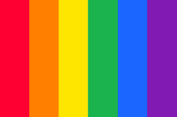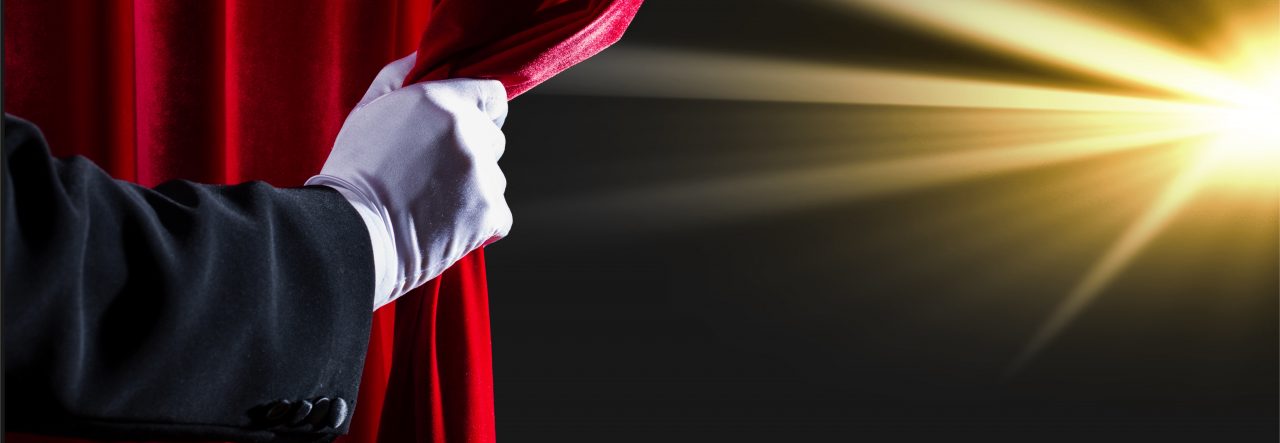

Subtitled “100 Years Of LGBT Music” Darryl W Bullock does a thorough job with his overview of popular music and the role played by LGBT artists. If there is a central character then that is David Bowie whose “otherness” struck a chord with a whole generation who felt they didn’t fit in. I was a little too young to comprehend the seismic shift which occurred in popular culture when Bowie appeared on the scene. Viewers who saw him put his arm around guitarist Mick Ronson on early evening “Top Of The Pops” (we obviously were not used to men touching then) were instantly divided into those who “got Bowie” and those (largely but far from exclusively split along generational lines) who most certainly didn’t.

In 1972 Bowie interviewed in “Melody Maker” said “I’m gay and always have been even when I was David Jones”. How much of this was the fame-hungry Bowie looking for headlines? This statement was revised over the years and we know enough about him to understand that his sexuality was not as defined as he suggested at the start of his career but these words ensured the music world would never be the same again.
But the questioning of sexuality did not begin in 1972 and Bullock provides a largely chronological study. He begins in early twentieth century New Orleans with its ethnic mix, red-light districts, poverty and party atmosphere which saw blues, ragtime and jazz emerging from the dives and honky-tonks. Gay pianist Tony Jackson was a leading light and blues singers such as Ma Rainey and Bessie Smith led the way in hitting the big-time often with female lovers in tow.
As the music business got more profitable and big fortunes were to be made record label executives did not want to do anything to rock the boat and so closet doors shut firmly on artists such as Liberace, Johnny Ray and Johnny Mathis and in the UK, Noel Coward and Ivor Novello.
By the 60’s and 70’s the sexuality of big stars became a tabloid newspaper obsession and artists such as Dusty Springfield, Elton John and Freddie Mercury were hounded waiting for them to be caught out. Closet doors creaked open a little and then shut. Dusty left the UK, Elton married a woman and Freddie died of AIDS. By the late 90’s another much-hounded performer George Michael was able to turn the whole thing on its head when he was outed following a “lewd act” arrest (something which had more or less killed the career of Johnny Ray in the US decades earlier) and he came out unapologetically with the celebratory, joyous “Outside” single and video.

Bullock does not just focus on the stars who made it and is perhaps even more illuminating on those who were unable to find success because of their sexuality. Some forms of music opened doors (Disco, British 80’s pop, Folk music, New Romantics and Punk) and some did what they could to ensure LGBT artists would not succeed (Country, Hip hop, Reggae, Christian Rock). Bullock examine these artists who have tried to change attitudes but it is a slow process in some areas. In 2016 Trey Pearson of Christian Rock band Everyday Sunday’s coming out led to immediate axing from festivals and with the US veering more towards conservatism things might not change that quickly.
In the UK more positive attitudes have ensured that an artist’s sexuality is not a kiss of death career-wise and this has meant that LGBT artists are now amongst our best loved stars – Elton, Freddie and George Michael have been joined as household names by Boy George, Frankie Goes To Hollywood, Pet Shop Boys, Morrissey, Jimmy Somerville, Marc Almond, Andy Bell of Erasure, Tom Robinson, Will Young, Sia, Sam Smith etc. That etc. suggests that we are hopefully fast approaching the point where sexuality does not matter. Since the 1980’s the British pop charts have been fuelled by the sound of gay and gay-friendly acts (Stock Aitken and Waterman had a significant part to play in this) but in other parts of the world this is not the case. I like very much the scope of Bullock’s work and his ability to document the past and project into the future. This made “David Bowie Made Me Gay” both a celebration and highly thought-provoking.

“David Bowie Made Me Gay” was published in 2017 by Duckworth Overlook

We have in the family a member who “GETS” Bowie….I am not EVEN ATTEMPTING to solve the puzzle. The person is well loved and respected for what she/he IS. Nobody chooses to be this way or the other…GOOD THING IS, such person gets his/her head round the issue, some artistic and creative background…and nothing taints her/his heightened SOCIAL CONSCIENCE,HALF OF THE FAMILY has a clue, the other NOT EVEN GUESSING…as there is nothing to guess…Accept it and move on….Who am I to say what?She/he has a child, who MAYBE like that – different, as well…We all are living our lives…Live and let live.
LikeLiked by 1 person
I totally agree with Monika. Live and live.
Success should be about your ability, your talent. Not based on whether or not others will be offended by your sexuality.
As you know, I am a massive Barry Manilow fan, I also like Johnny Mathis. I was a fan of Rock Hudson, as a teenager I had a huge poster of him on my bedroom wall above the bed; I would have been a fan of these men had they been straight.
It saddens me that even today there are people out there that cannot or will not accept others for who they are, their prejudices reflect their fear of something they cannot understand.
But you already know my opinion.
Love to you both.
LikeLiked by 1 person
Pingback: Breaking Down The Walls Of Heartache – Martin Aston (2016) – A Rainbow Read – reviewsrevues
Pingback: The Velvet Mafia- Darryl W Bullock (2021) – reviewsrevues